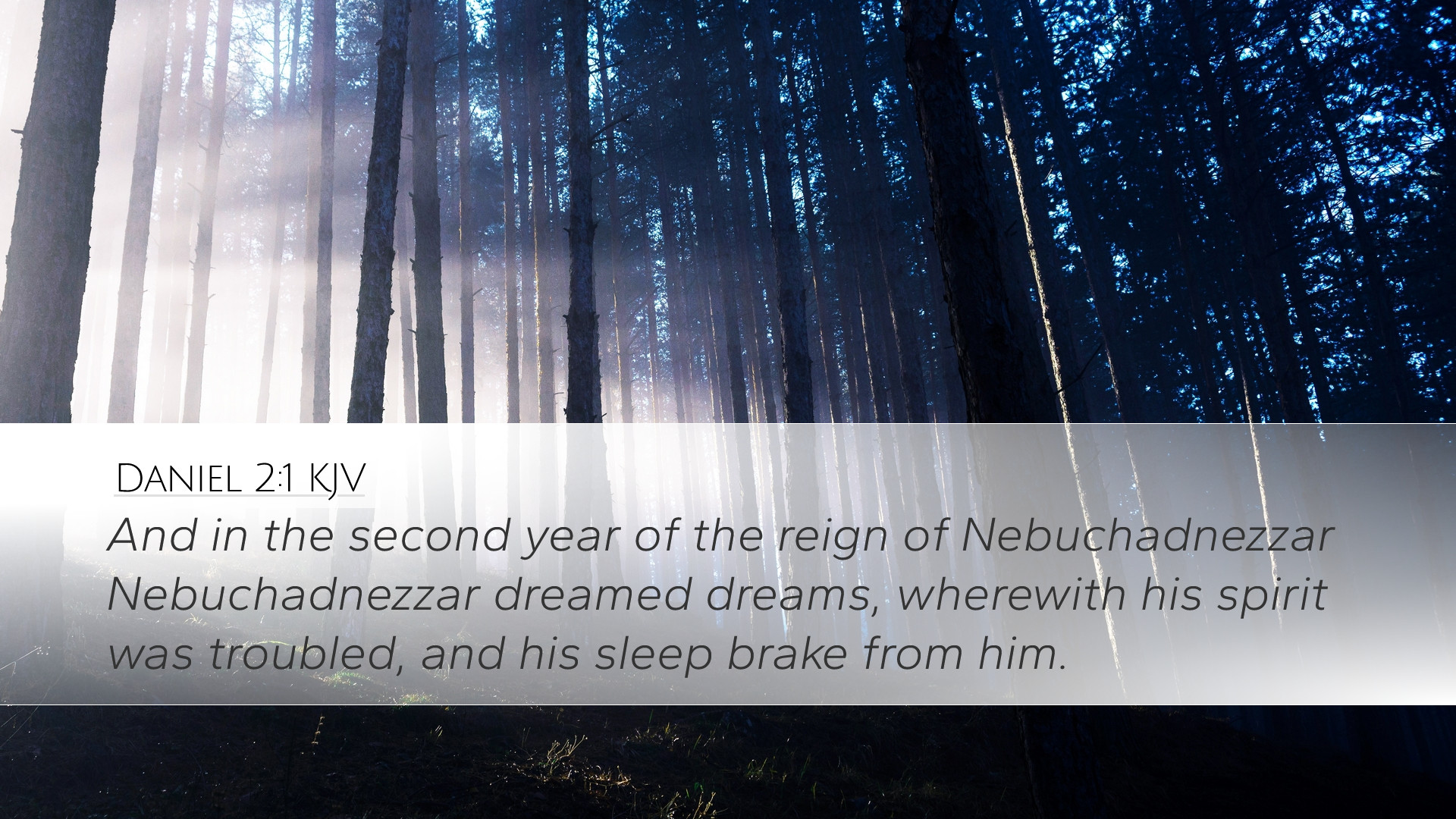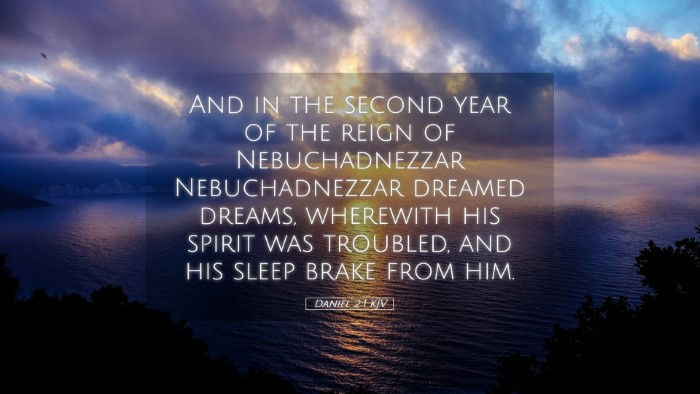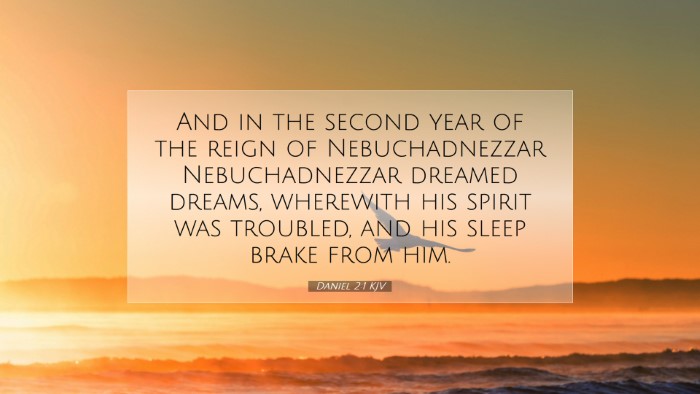Commentary on Daniel 2:1
Text: "And in the second year of the reign of Nebuchadnezzar, Nebuchadnezzar dreamed dreams, wherewith his spirit was troubled, and his sleep brake from him." (Daniel 2:1)
Introduction
The account in Daniel 2:1 marks a pivotal moment in the narrative of the Book of Daniel. It serves as a profound illustration of divine sovereignty and the significance of dreams in biblical tradition. In this passage, King Nebuchadnezzar experiences a troubling dream that not only distresses him but sets in motion a series of events that will highlight God's authority over earthly kingdoms.
Context and Historical Background
- Chronological Setting: This verse takes place in the second year of Nebuchadnezzar's reign, a period characterized by the king's consolidation of power after the conquest of Jerusalem.
- Sociopolitical Forces: The young king's rule is marked by military successes, yet, he faces the challenges of ruling a diverse empire. The dream is a divine intervention designed to address both the king's spiritual condition and the future of his empire.
Verse Analysis
The Nature of Dreams
The dreaming of Nebuchadnezzar is significant in several ways:
- Divine Revelation: Dreams in the ancient Near East were often seen as a medium through which the gods communicated with humans. In this case, God uses a dream to reveal His plan regarding the kingdoms of the world.
- Psychological Dimension: The troubling nature of the dream indicates a profound message. Nebuchadnezzar's spirit is agitated, suggesting that this dream challenges his assumptions and ignites fears about his reign and destiny.
The King's Reaction
Nebuchadnezzar's inability to interpret the dream leads him to summon the wise men of Babylon, an act that reveals his desperation and the limitations of human wisdom:
- Authority and Control: As king, he seeks to exert control over the situation, yet the dream eludes understanding, highlighting the futility of relying solely on human resources.
- Spiritual Implications: The stirring of his spirit signifies a divinely ordained confrontation with his own limitations and the inherent need for divine guidance.
Theological Implications
- The Sovereignty of God: This narrative illustrates God's sovereignty over human leaders and empires. Despite Nebuchadnezzar’s power, the true ruler of history remains God.
- Prophetic Elements: The dream foreshadows future events, not just for Babylon but for all nations, encompassing a prophetic warning and encouragement to God's people.
Public Domain Commentary Insights
Matthew Henry
Henry emphasizes that the focus is on God's communication to humanity through dreams. He notes that dreams can stir one's spirit toward important truths, signifying that God is at work, even when humans are unaware. The agitation of Nebuchadnezzar’s spirit serves as a reminder that God can disrupt our comfort to reveal deeper realities.
Albert Barnes
Barnes highlights the chaotic situation surrounding Nebuchadnezzar's reign and interprets the dream as a divine mechanism to reveal the king's place within God's overarching plan. He stresses Nebuchadnezzar's vulnerability in the face of divine revelation, illustrating that human understanding falls short when confronted with God’s purposes.
Adam Clarke
Clarke notes that Nebuchadnezzar’s dream illustrates the precariousness of human authority. He suggests that the king's disturbance reflects an inner spiritual conflict, which leads him to seek answers outside his usual advisors, hinting at a growing awareness of a higher power. Clarke elaborates that such dreams have led many leaders historically to ponder their fate and the nature of their rule.
Conclusion
Daniel 2:1 serves not merely as a historical account but as a theological assertion of God's sovereignty. The troubling dream of Nebuchadnezzar sets the stage for a profound revelation of the divine plan for the world’s kingdoms. Scholars, pastors, and theologians must appreciate the multifaceted implications of this verse, considering how dreams can serve as gateways to understanding God's will, as well as the limits of human wisdom.


